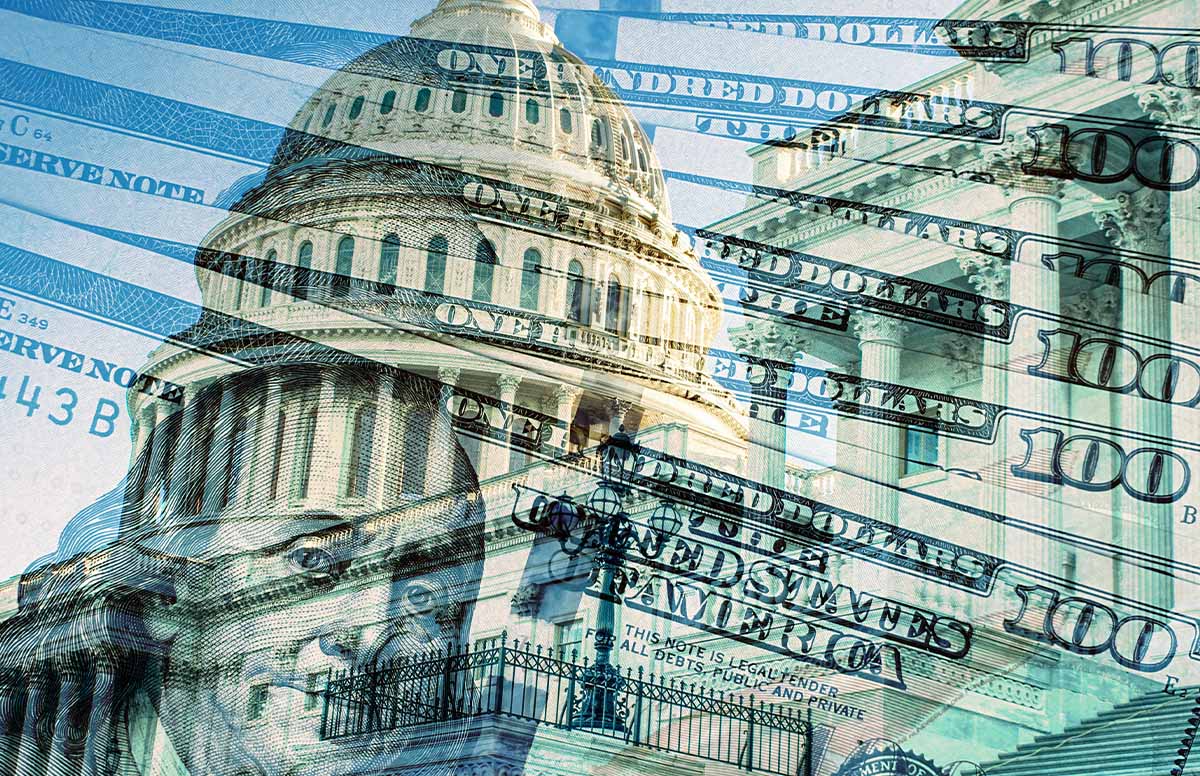The House and Senate leadership released the text of six fiscal year 2024 (FY24) appropriations bills on March 3, including the one that funds the U.S. Department of Housing and Urban Development (HUD) program. Overall, based on an agreement reached earlier this year, available funding for non-defense discretionary funding is essentially flat with fiscal year 2023 (FY23).
For HUD, the bill provides an overall increase of $3.4 billion over FY23, much of it for Section 8 Project-Based Rental Assistance contract renewals and the Housing Choice Voucher and Homelessness Assistance Grant programs. These three programs alone serve more than 1.5 million older adults.
For HUD multifamily programs that serve older adults, the news from the bill is mixed. On the one hand, the bill increases funding for Section 8 Project-Based Rental Assistance (PBRA) contract renewals to $16 billion, a $1.1 billion increase over FY23 to keep pace with rising staffing, insurance, and other costs. About two-thirds of Section 202 communities receive their operating subsidy from the Section 8 PBRA program. The bill would also fully fund Section 202 Supportive Housing for the Elderly Project Rental Assistance Contract (PRAC) renewals at the $797 million requested by HUD for these renewals, plus another $112 million to fully renew service coordinator grants, and $4 million for HUD administrative costs.
However, the bill does not provide any funding for new Section 202 homes, service coordinator grants, or funding to support PRAC rent increases prior to conversion to the Section 8 platform under the Rental Assistance Demonstration (RAD). HUD had requested additional funds for each of these efforts and the Senate’s FY24 bill included increases for them as well.
Overall, the bill settled on the House’s funding levels for the Section 202 account, leaving no funds for new Section 202 homes, new service coordinator grants, or RAD for PRAC rent boosts. The funding in the bill for the Section 202 program represents a 15% cut to the Section 202 account, from $1.075 billion in FY23 to $913 million in FY24, a disappointing amount given long waiting lists and increasing worst case housing needs among older adults.
While the bill does not provide section 202 PRAC rent boosts for RAD for PRAC conversions, the bill does expand the bill to allow properties with Senior Preservation Rental Assistance Contracts can convert to long-term project-based Section 8 contracts under RAD.
Other programs are cut compared to FY23 funding levels as well, including the HOME block grant program by $250 million to $1.25 billion and the Section 811 Housing for Persons with Disabilities program, which was cut from $360 million in FY23 to $208 million in FY24.
The bill includes a $418 million increase for Homeless Assistance Grants and about a $2.2 billion increase for Housing Choice Vouchers.
Also included in the bill, as new funding, is $2.5 million to support efforts between HUD and the Department of Health and Human Services to provide direct technical assistance to communities leveraging programs, such as Medicaid, to cover and provide housing-related supportive services and behavioral healthcare. The HUD bill also includes $30 million for the Office of Lead Hazard Control and Healthy Homes’ Aging in Place Modification grants to treat housing-related health and safety hazards in about 6,000 homes of low income older adults to help enable them to age in place, of which $10 million is for substantially rural communities.
The bill contains $3.3 billion in “economic development initiatives,” or earmarks, for specific projects in members of congress’s states and districts.
The House is expected to take up the bill on March 6, with Senate action and President Biden’s signature complete by the March 8 expiration of the current continuing resolution, a series of which have kept HUD programs funded at FY23 levels since October 1, 2023.

 Shutdown Week Three: Impact of Ongoing Closure on Affordable Housing
Shutdown Week Three: Impact of Ongoing Closure on Affordable Housing Colleagues on the Move, January 7, 2026
Colleagues on the Move, January 7, 2026


